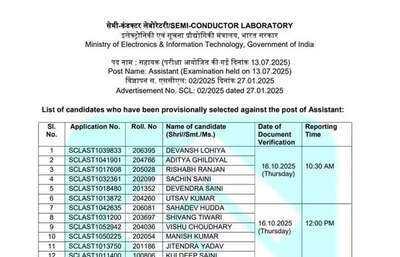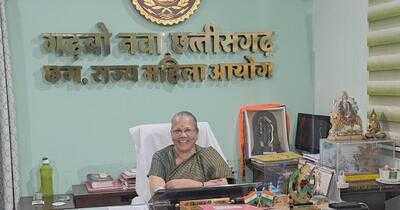
The arrival of a newborn brings immense joy, but it can also trigger unexpected emotional changes for many mothers. New mothers often experience temporary mood swings, tearfulness, or irritability, but it’s crucial to differentiate between what is typical and what requires medical attention.
Understanding Postpartum Emotions
Dr Pankhuri Gautam, Senior Consultant, Obstetrics & Gynecology at Cocoon Hospital, notes, "We often refer to postpartum blues as 'baby blues,' a common experience that affects around 70–80% of new mothers a few days after childbirth. It usually lasts a week or two and doesn’t require medical treatment."
On the other hand, postpartum depression (PPD) can be more severe and persistent. Dr Aruna Kalra, Director of Obstetrics and Gynaecology at C K Birla Hospital, adds, "PPD may start a few weeks after delivery, sometimes even after a few months. Mothers may feel very sad, hopeless, or guilty, lose interest in things they once enjoyed, struggle to bond with the baby, or have trouble sleeping or eating."
Recognising Early Warning Signs
Family members and partners often play a key role in noticing signs of emotional distress. Dr Tejashri Shrotri, Senior Consultant at Medfemme Women’s Clinic, advises, "If the mother seems unusually withdrawn, overwhelmed, tearful, or is struggling to connect with the baby even after the initial weeks, these could be early signs of emotional distress."
Common signs include persistent sadness, withdrawal from loved ones, disrupted sleep, or sudden changes in appetite. Dr Pankhuri Gautam highlights, "If any of these signs continue for more than a week or two, it’s important to offer support without judgment." Observing carefully, listening, and encouraging open conversation can help mothers feel understood and supported.
Effective Support Systems For New Mothers
Practical and emotional support is vital during postpartum recovery. Dr Aruna Kalra says, "Every new mom needs a strong circle of support, including emotional reassurance, practical help with baby care, and professional guidance."
Even small gestures like helping with household chores, providing nutritious meals, or giving the mother time to rest can make a huge difference. Dr Tejashri Shrotri adds, "Support during the postpartum period is not just helpful, it’s essential. No mother should feel like she has to ‘handle it all’ alone."
Preventive Steps During Pregnancy
Preparation during pregnancy can reduce the risk of postpartum depression. Dr Pankhuri Gautam suggests, "Expectant mothers are usually encouraged to engage in regular exercise, balanced nutrition, mindfulness, and prenatal yoga, while maintaining open communication with family and healthcare providers."
Dr Aruna Kalra also recommends attending prenatal classes and planning for extra help in the early weeks. "Maintaining good sleep, healthy food, and light exercise, along with emotional support, can make a real difference," she says. Dr Tejashri Shrotri concludes, "Early awareness and open communication are powerful tools for managing postpartum emotions."
By recognising the differences between baby blues and postpartum depression and creating a supportive environment, families can help new mothers navigate this critical period. Understanding, empathy, and practical support can ensure both mother and baby thrive.
[Disclaimer: The information provided in the article, including treatment suggestions shared by doctors, is intended for general informational purposes only. It is not a substitute for professional medical advice, diagnosis, or treatment. Always seek the advice of your physician or other qualified healthcare provider with any questions you may have regarding a medical condition.]
-
Join the Indian Army: TGC 143 Recruitment 2025 Now Open

-
Join the Indian Army: TGC 143 Recruitment 2025 Now Open

-
SCL Assistant Exam Results Released: Check Your Scores Now

-
Chhattisgarh women's panel seeks FIRs against Bajrang Dal workers for 'harassing' nuns, tribal women

-
SteelSeries Arctis Nova Elite is ultimate luxury headset - just don't look at price tag
